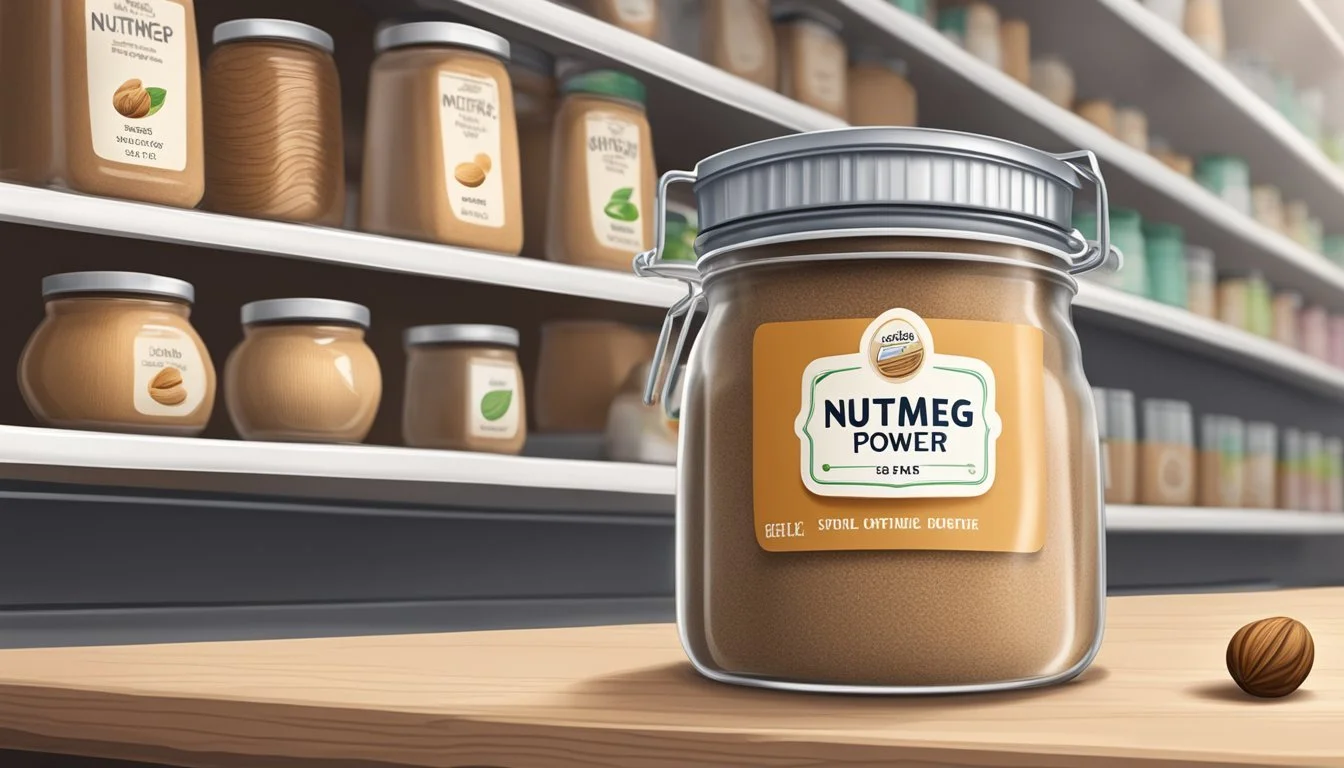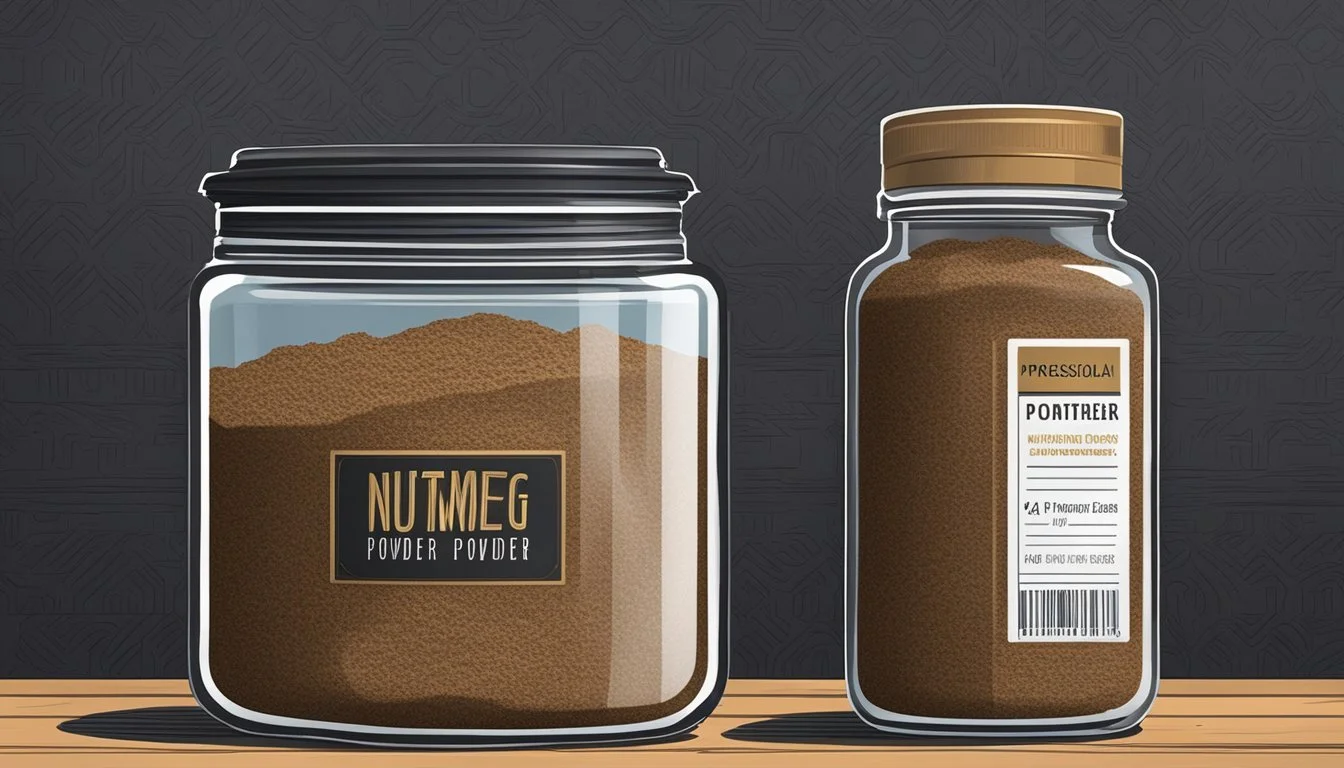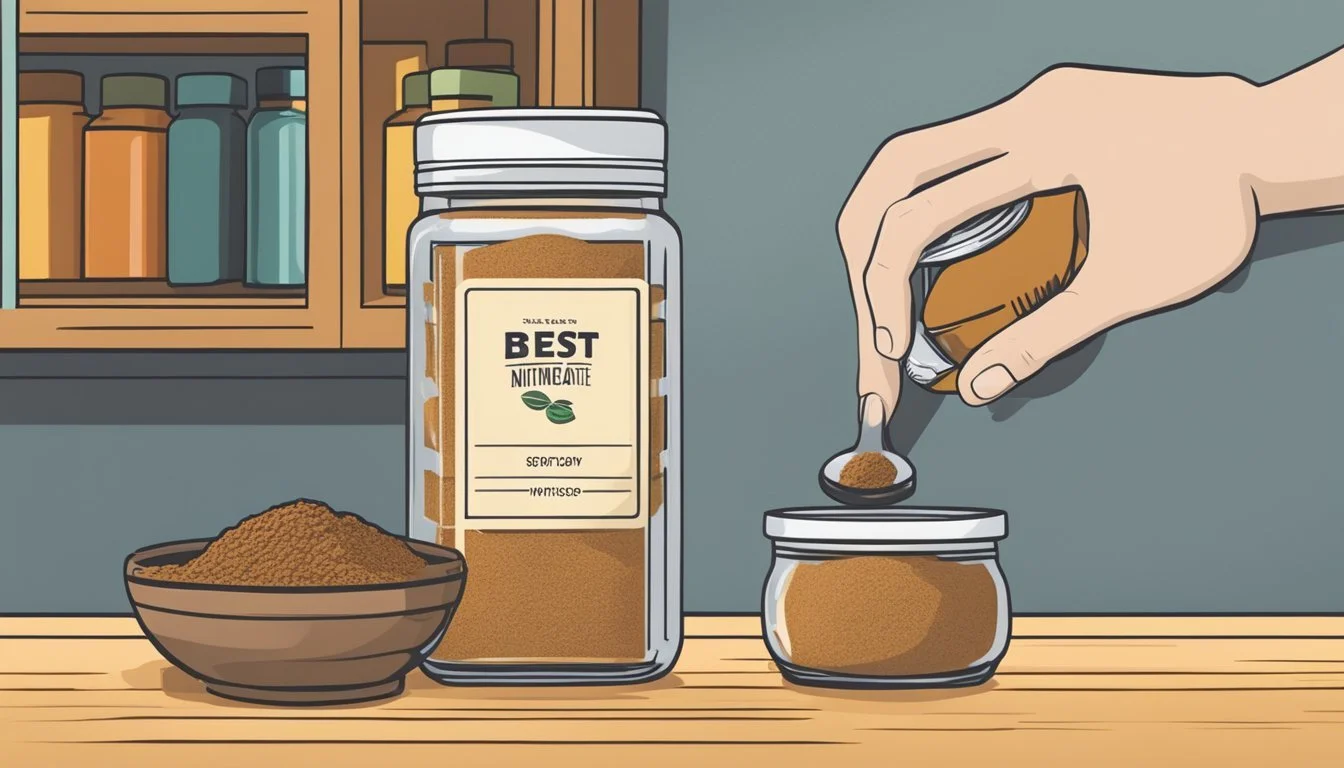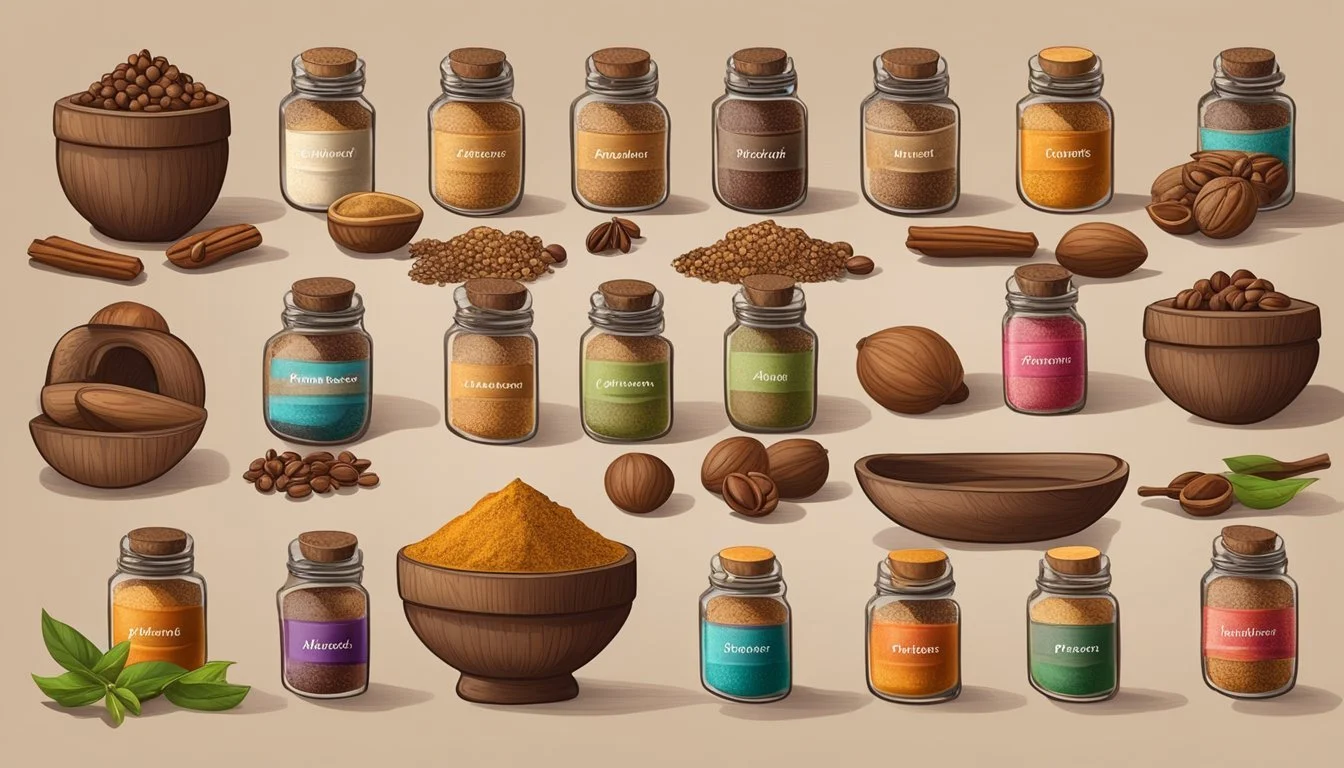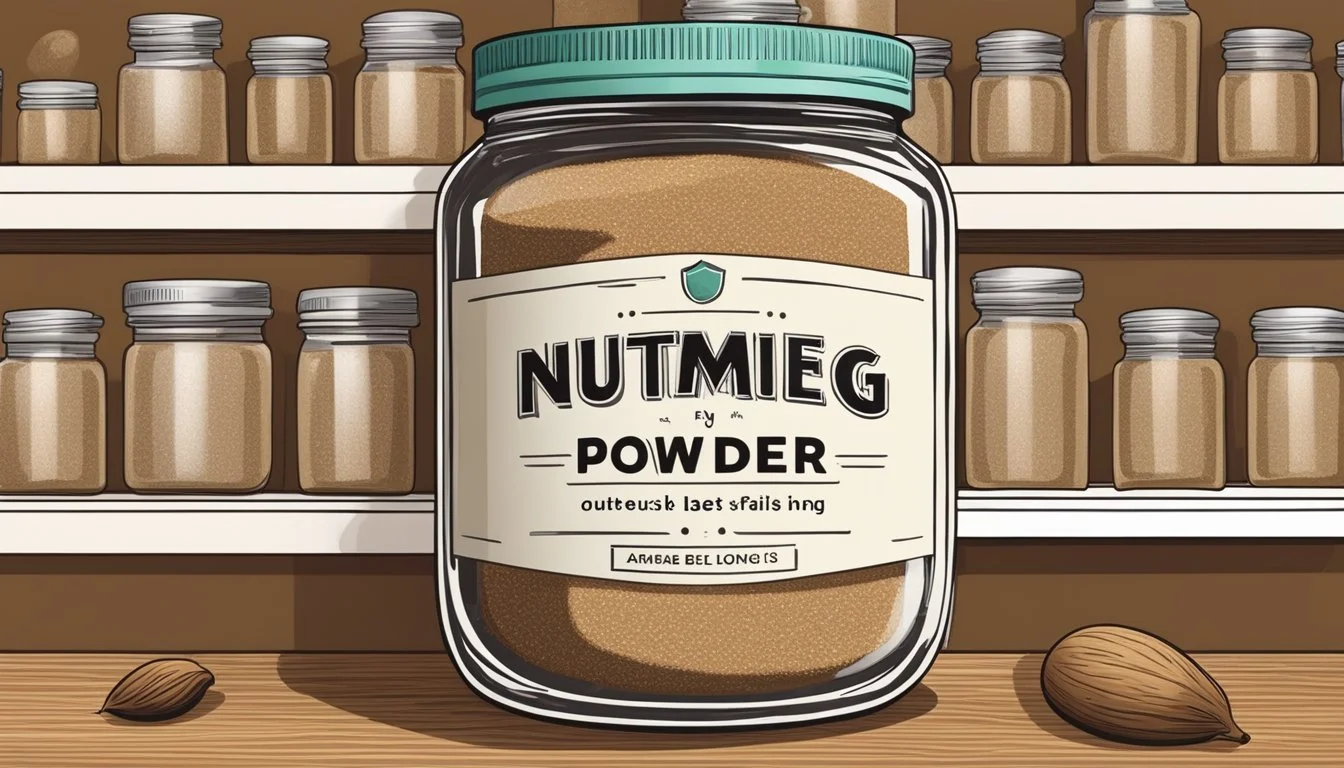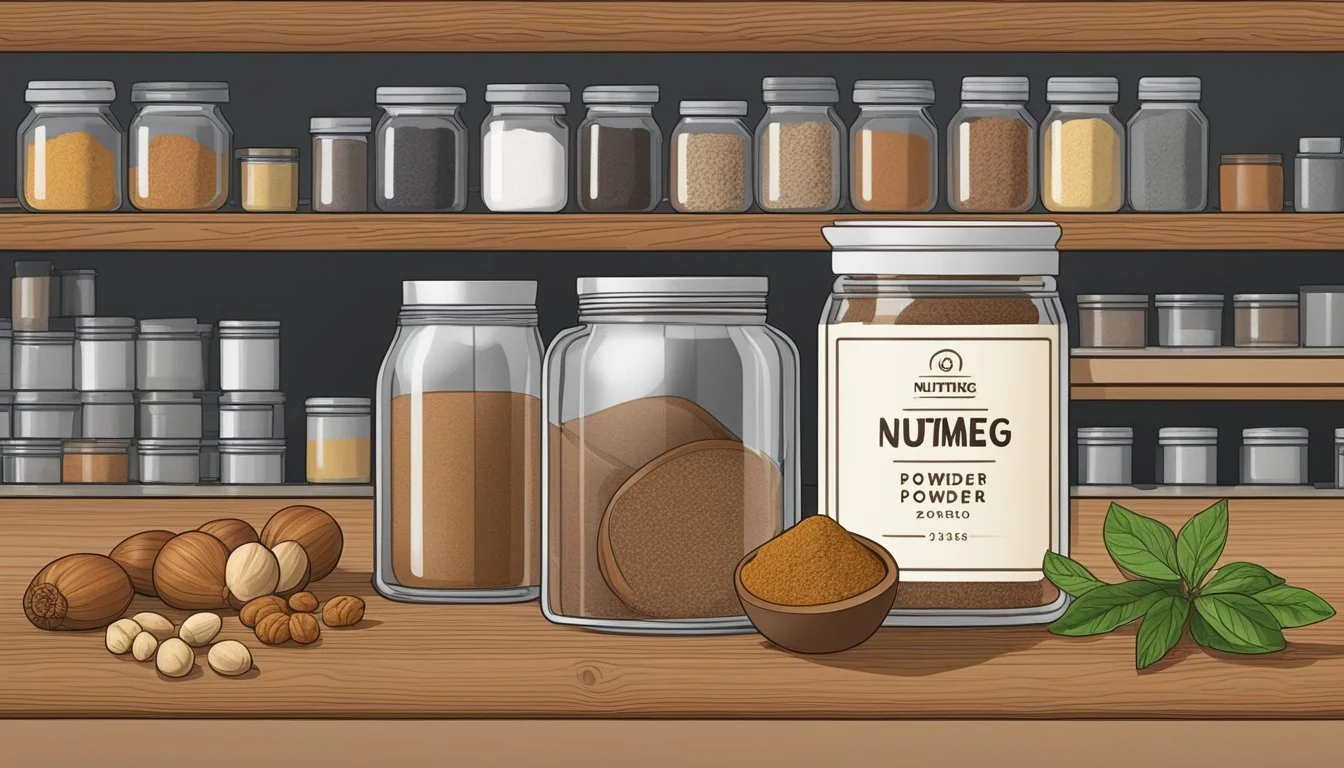How Long Does Nutmeg Powder Last?
Shelf Life and Storage Tips
Nutmeg powder, a widely celebrated spice for its warm, nutmeg-y flavor and versatility in both sweet and savory dishes, has a notable shelf life that home cooks and professional chefs should keep in mind. As a dried spice, its longevity surpasses that of many fresh ingredients, but it doesn't last indefinitely. The longevity of nutmeg powder hinges on proper storage practices; when kept in an airtight container away from heat, light, and moisture, its full flavor and potency typically remain for about two to three years. As time progresses, although the powder may not necessarily spoil in a traditional sense, its essential oils dissipate, leading to a decrease in the aroma and flavor that are integral to the culinary uses of the spice.
Recognizing the signs of aging in nutmeg powder is crucial for ensuring the quality of the dishes it is used in. Over time, nutmeg powder may lose its distinctive aroma, and its flavor can fade. Though it may still be safe to use beyond this point, the muted taste may not provide the desired impact in recipes. Chefs and cooking enthusiasts often rely on aroma as a quick assessment tool—potent nutmeg powder should release its characteristic scent readily, and a lack thereof is a clear indication that it's past its prime.
A well-organized pantry helps in maintaining the freshness of spices like nutmeg. Isolating spices from sources of heat such as the stove or oven and from areas exposed to sunlight can substantially mitigate the diminishing of flavor. Nutmeg powder stored in these optimal conditions becomes a long-lasting ingredient, capable of enhancing countless recipes with its complex sweetness and warmth.
Understanding Nutmeg
Nutmeg, derived from the seeds of the Myristica fragrans tree, is a versatile and valued spice with a long history in culinary traditions. It is prominent for its warm, slightly sweet flavor and rich aroma, which makes it a favored ingredient in various dishes, desserts, and beverages around the world.
The Myristica fragrans is indigenous to the Spice Islands of Indonesia but is also cultivated in other tropical regions. When the tree's fruit matures, it splits open to reveal the nutmeg seed encased within a bright red, lacy aril called mace, another spice.
Nutritional and Medicinal Properties:
Flavor & Aroma: Nutmeg's distinctive flavor is nutty and slightly sweet, while its aroma is bold and spicy.
Health Benefits: Nutmeg contains compounds that may offer health benefits, including anti-inflammatory properties.
Anti-inflammatory Properties: The spice has been associated with reducing inflammation, thanks to components like monoterpenes, sabinene, and terpineol.
When incorporating nutmeg into dishes, it's essential to do so with moderation, as the flavor is potent and can be overwhelming. Additionally, excessive consumption can have adverse health effects, so culinary use is recommended within safe limits.
Proper storage of nutmeg is critical in maintaining its flavor and health benefits. Whether in the form of a whole seed or ground powder, keeping nutmeg in a cool, dry place, away from direct sunlight, is essential to preserve its quality. A tight-sealing container will prevent air and moisture from impacting the spice's integrity.
Factors Affecting Nutmeg Potency
Understanding the factors that influence the potency of nutmeg powder is crucial for maintaining its quality. Proper storage practices are key to preserving its flavor, color, and texture.
Light Exposure and Nutmeg
Exposure to light, especially sunlight, can degrade the quality of nutmeg powder over time. Light can cause the spice to lose its vibrant color and rich flavor. Therefore, storing nutmeg in a dark place away from direct sunlight helps in maintaining its potency and extending its shelf life.
Temperature and Humidity Influence
Nutmeg's potency is best preserved when stored in a cool and dark place with stable temperature and low humidity. Fluctuations in temperature and humidity can lead to condensation and moisture accumulation, which in turn may cause the spice to clump and lose its texture and flavor. A consistent room temperature away from sources of heat is ideal for spice storage.
Storage and Container Impact
Nutmeg powder's longevity and potency rely heavily on the type of storage and containers used. Airtight containers with tight-fitting lids are essential in protecting the spice from air and moisture, two elements that can significantly diminish its quality. Using containers that shield the spice from air exposure preserves its essential oils and aroma, thus maintaining its quality and potency.
Shelf Life of Nutmeg
The longevity of nutmeg is significantly affected by its form—whole or ground—as well as storage conditions, which can prolong its vibrant flavors or lead to earlier spoilage.
Whole vs Ground Nutmeg Longevity
Whole nutmeg retains its freshness for a considerably longer period than ground nutmeg. When stored under optimal conditions, which include a cool, dry place away from direct sunlight, whole nutmeg can maintain its best quality for up to four years. In contrast, ground nutmeg typically has a shorter viable period, retaining its full flavor and potency for about 2 to 3 years when kept in an airtight container.
Identifying Spoilage Signs
Nutmeg, be it ground or whole, does not spoil in the same way as perishables, but it can go bad. The signs to look for include:
Mold Growth: Any visible mold means the nutmeg should be discarded immediately.
Discoloration: If the color has significantly faded, it is a sign of aging.
Smell Test: Nutmeg should have a sweet and nutty aroma. A loss of smell indicates it's time to replace it.
If nutmeg exhibits signs of spoilage, it should be considered gone bad and discarded for safety and quality purposes.
Expiration Dating
Nutmeg is often sold with a best-by date, which is a good indicator of how long it can retain peak quality. This date is not an expiration date; nutmeg can still be safe to use after this timeframe, though its flavors may diminish. However, if nutmeg has surpassed the best-by date by several years or shows any signs of spoilage as mentioned above, it's recommended to replace it to ensure the best flavor and safety in culinary use.
Proper Storage Techniques
Proper storage is essential for maintaining the quality and extending the shelf life of nutmeg powder. An understanding of the ideal conditions for nutmeg, differences between pantry and refrigeration storage, and the potential for freezing can make all the difference.
Ideal Nutmeg Conditions
Nutmeg powder remains potent when stored under specific conditions. It should be kept in an airtight container to prevent exposure to moisture and air that can diminish its flavor. The ideal location for this container is a cool, dark place away from any direct heat sources such as an oven or a stovetop.
Nutmeg in Pantry vs Refrigeration
A pantry typically offers the cool, dark environment that nutmeg requires. However, the condiment should not be stored above the stove, under the sink, near the dishwasher, or by any other heat-producing appliances. While not necessary, some may opt for refrigeration to potentially extend the freshness of nutmeg powder, especially in warmer climates or during hot weather where indoor temperatures exceed usual pantry conditions.
Extending Nutmeg's Life through Freezing
For long-term storage, nutmeg can be preserved by freezing. The spice should be sealed in airtight bags or containers before placing it in the freezer. This method can significantly prolong the shelf life by preventing flavor loss caused by prolonged exposure to adverse conditions. However, it's important to ensure that the nutmeg is thoroughly sealed to avoid freezer burn and moisture accumulation.
Purchasing and Usage Tips
Selecting the right nutmeg and using it effectively can greatly enhance the flavor profile of dishes. This section will guide readers through choosing quality nutmeg, maximizing its culinary potential, and recognizing when it is time to replace it.
How to Choose High-Quality Nutmeg
To ensure the best quality and flavor potency, one should purchase whole nutmeg. The surface of quality nutmeg should be firm and free of blemishes or cuts. High-quality nutmeg will have a rich aroma; a strong scent usually indicates that the nutmeg is fresh and potent.
Optimizing Nutmeg's Use in Cooking
Nutmeg powder enriches the taste of various dishes, from sauces and soups to stews and baked goods like pumpkin pie, apple pie, and casseroles. To maximize its use:
Grind fresh nutmeg just before adding it to a dish to preserve its flavor.
Use nutmeg sparingly; a small amount often suffices to impart a warm, spicy note.
When to Discard or Replace Nutmeg
Nutmeg does not spoil in the traditional sense, but it can lose its flavor and potency over time. One should consider discarding nutmeg powder if:
It has been stored for more than two to three years.
There is a noticeable lack of aroma, or the taste in dishes becomes indistinct.
The nutmeg powder appears clumpy or has changed in color, indicating moisture exposure that could affect its quality.
Nutmeg Varieties and Alternatives
Exploring nutmeg in its various forms provides insights into its culinary versatility and shelf life, along with the readily available alternative, mace, which is derived from the same plant.
Comparing Nutmeg and Mace
Nutmeg and mace are both products of the Myristica fragrans tree. The former is the seed, whereas the latter is the seed covering, known as the aril. While whole nutmeg can retain its potency for up to four years when stored properly, mace, being slightly more delicate, may have a marginally shorter shelf life. Ground nutmeg typically loses its piquancy faster, usually within two to three years. Flavor-wise, mace is somewhat more pungent and can impart a similar warm, spicy flavor to dishes, making it an appropriate substitute for nutmeg in many recipes.
Options Beyond Pre-Ground Nutmeg
Connoisseurs often prefer whole nutmeg over the pre-ground variety due to its prolonged shelf life and the fact that it can be grinded as needed, ensuring a fresher, more robust taste. Freshly grated nutmeg tends to be more aromatic and flavorful compared to its pre-ground counterpart.
Nutmeg Form Shelf Life Flavor Common Uses Whole Nutmeg Up to 4 years Robust, fresh Grated as needed Ground Nutmeg 2-3 years Less potent over time Ready-to-use Mace Similar to nutmeg Slightly more pungent Substitute for nutmeg
By selecting whole spices and opting to grind them oneself, one can enhance the flavor profile of any dish where nutmeg is called for. Devices such as a spice grinder or a microplane grater can be used for grinding, giving a just-in-time freshness to recipes. For those looking for alternatives to ground nutmeg, mace offers a practical and flavorful option.
Health Considerations
Nutmeg powder is a popular spice with a history of both culinary and medicinal use. In terms of health benefits, nutmeg contains compounds that may have anti-inflammatory and antioxidant properties. Its use, in moderation, can contribute flavor and potential health advantages to various dishes.
When it comes to consumption, it is important to use nutmeg in typical culinary amounts. Excessive intake can lead to health problems due to the presence of myristicin, a natural compound found in nutmeg that can be toxic in large quantities. Symptoms of overconsumption include nausea, dizziness, and other adverse effects.
Here are key precautions for using nutmeg powder:
Use in Moderation: A pinch or two is typically enough to impart flavor without overdoing it.
Storage: Keep nutmeg powder in an airtight container and in a cool, dry place to maintain its quality.
Check Quality: Use your senses to inspect the powder; a strong, aromatic scent and consistent color are indicators of good quality.
Consumers should be mindful of the proper use of nutmeg to enjoy its benefits safely. If any adverse reactions occur, they should discontinue use immediately and consult healthcare professionals.
Frequently Asked Questions
This section addresses common inquiries about nutmeg powder's quality, testing for potency, potential toxicity, and optimal storage practices to ensure the best shelf life.
How to Test Nutmeg Potency
To assess the potency of nutmeg powder, one should perform a smell test. Fresh nutmeg powder will emit a strong, aromatic scent. If the spice smells dull or has lost its distinctive aroma, it may indicate a decline in flavor quality.
Can Nutmeg Become Toxic?
Nutmeg contains myristicin, a natural compound. While it isn't toxic in small quantities typically used for cooking, consuming it in very large doses can lead to negative health effects. However, nutmeg powder doesn't become toxic over time with proper storage.
Best Practices for Nutmeg's Shelf Life
Storage: Keep nutmeg powder in an airtight container to protect it from moisture and odors.
Environment: Store the container in a cool, dark location away from direct heat or sunlight.
Duration: Ground nutmeg's full flavor and potency is best maintained for 2-3 years under these conditions.
Following these practices helps ensure the spice retains its quality for as long as possible within its optimal shelf life.

